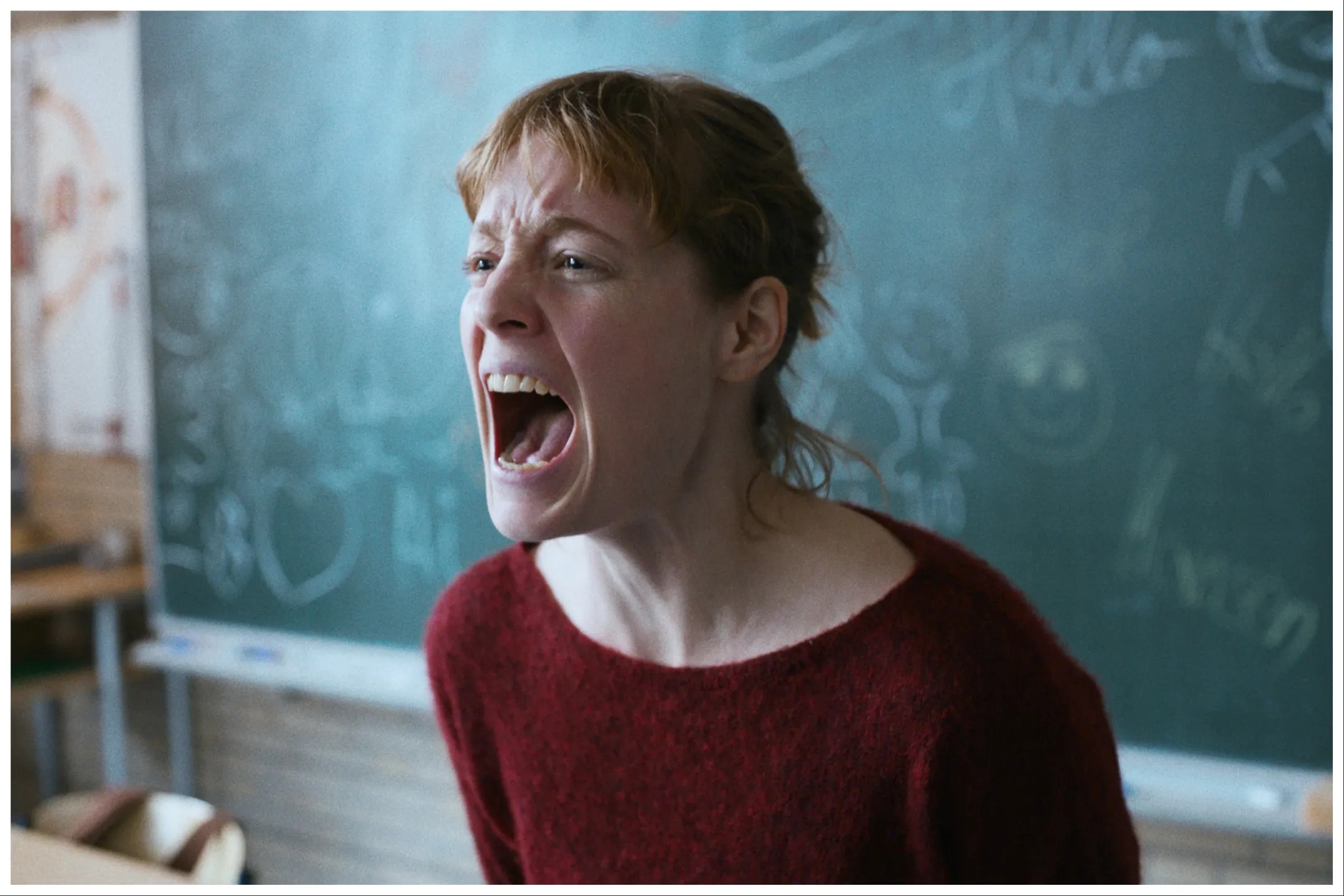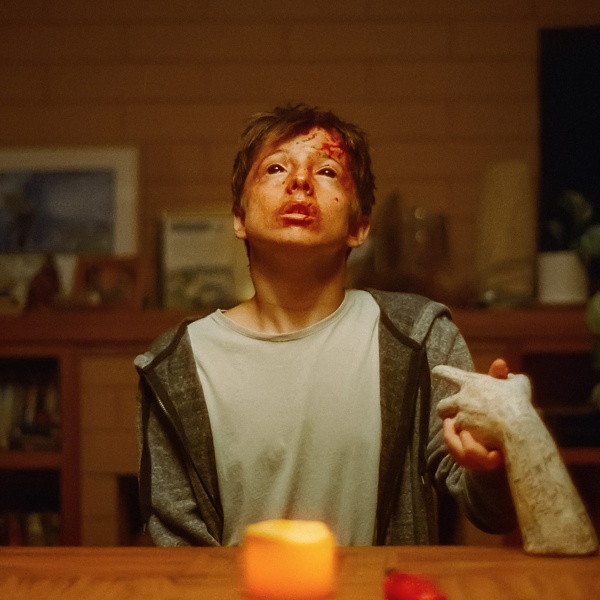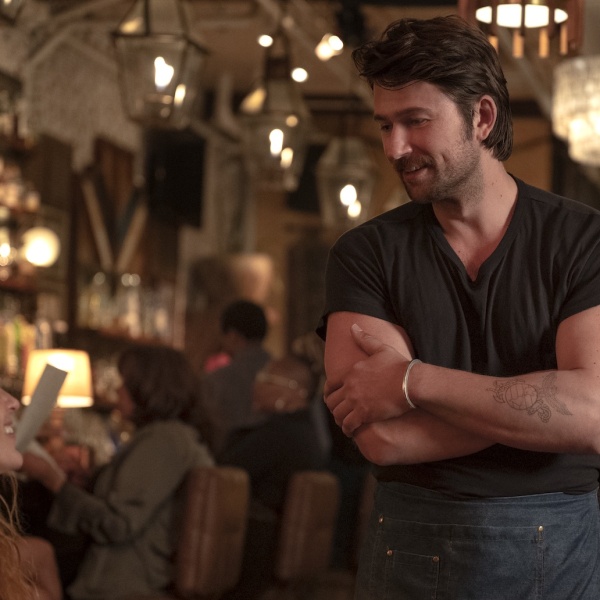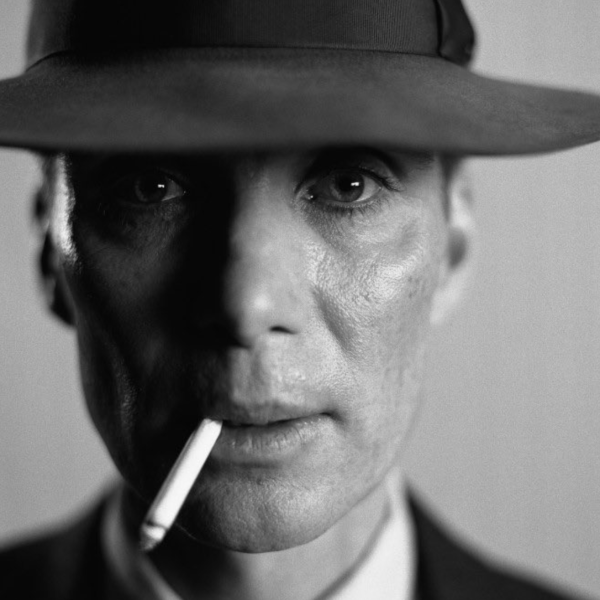“Dead Poets Society.” “Mr. Holland’s Opus.” “School of Rock.” There are oh so many films about free-thinking educators who inspire young people to be their best selves in the face of stodgy institutions that would seek to limit the full scope of a student’s potential. İlker Çatak’s “The Teacher’s Lounge” is not one of those films. On the contrary, this lung-tightening scholastic thriller — which effectively imagines what seventh grade might be like if the curriculum were determined by Michael Haneke — tells the story of a nonconformist teacher who strives to do right by the most vulnerable kids in her class, only to fail spectacularly at every turn.
It’s not because she has some kind of secret blind spot, or because the German public school where she works is a magnet for any particularly vile behavior. And it’s not entirely because the paranoia enabled by modern technology has turned its hallways and classrooms — and yes, even its lounges — into a virtual panopticon with the local parents’ WhatsApp group as the all-seeing eye at its center, although that becomes an ambient factor in a story where information becomes the enemy of trust. No, the reason that Carla Nowak (a clenched and excellent Leonie Benesch) spirals out once she tries to absolve a vulnerable student from accusations of petty theft is because the world is much simpler than all that: The world is an increasingly complicated place that relies on its inflexibly rigid institutions to bring order to chaos, but order is not the same thing as logic, and woe to anyone who tries to reconcile the two.
It’s telling that “The Teacher’s Lounge” introduces its heroine at the front of her class with the sound of an orchestra warming up. Carla might think of herself as a conductor (indeed, she starts each session by leading her students in a snappy little welcome song), but this idealistic newbie might overestimate her ability to make beautiful music out of a room full of feral noise; by the end of the movie, she’ll lead the same kids in a primal scream. If Carla isn’t overly personable in the way that movie teachers tend to be when trying to foster a deeper relationship with their pupils (she’s younger than the rest of the faculty, but there’s little evidence she’s any cooler for that), she’s convinced that the sincerity of her concern for the kids in her class will be enough to set them up for success. More pressingly, she’s also convinced that protecting them from adult bullshit will better prepare them for the world at large, oblivious to the fact that they’re already living in it.
We sympathize with her desire to fight the good fight because, for all of Carla’s unsmiling severity, Çatak and Johannes Duncker’s screw-turning script makes sure to get us onside. Shortly after “The Teacher’s Lounge” begins, Carla decides to involve herself in the school’s investigation into a spate of recent thefts. To Carla’s dismay, a pair of pre-teen class representatives are coerced into narc-ing on a Turkish kid named Ali (Can Rodenbostel), because the powers that be consider that to be the right thing to do… despite the unsubtle whiff of racism behind the accusation, and the fact that kids that age may not understand the finer points of the crime at hand. Such is the beauty of “zero tolerance” policies.
Carla is appalled by the punitive cynicism her fellow teachers bring to the situation, and even more so when Ali’s parents come in to bring some clarity to the situation. So our heroine decides to take matters into her own hands and set up a sting operation — in the teacher’s lounge! — which seems to catch the culprit red-handed. But the evidence isn’t quite as damning as it needs to be, and Carla’s decision to resolve the matter privately blows up in her face when the woman she confronts about it denies any wrongdoing. To make matters worse, the guilty party’s son, Oscar (Leo Stettnisch), is Carla’s favorite student. And he isn’t afraid to wield his intelligence as a weapon once he realizes that his teacher poses a threat to his mom.
The situation gradually continues to unravel from there, as Carla’s moral clarity is degraded and obscured by a matrix of conflicting agendas that fly in the face of her own lesson plan. “The important thing to remember is that a proof needs a derivation that builds up step by step,” she tells her students during math class, but things aren’t so cut-and-dried in a world where everyone is operating on the basis of their own equations, and what happens in the teacher’s lounge can never be trusted to stay in the teacher’s lounge.
To that end, the sharp power of Çatak’s film — and what elevates it from a pedagogic exercise in social disorder to a gripping single-location thriller, and vice-versa — is how “The Teacher’s Lounge” recognizes its school as both siloed and not. To some degree, it’s a universe unto itself, a fact the film acknowledges by never leaving the confines of its campus (and therefore forcing us to judge its characters solely based on what they do at school). Judith Kaufmann’s floating camera follows Carla around the hallways with the speed and urgency of an electric signal traveling through a body, and every time we move between rooms the entire building feels more like a maze that’s designed to condition surrender. Often just a hornet’s nest of violin strings, Marvin Miller’s score works to ensure that we heed the growing tension of Carla’s dilemma, and it’s effective to the point that some of Çatak’s extra flourishes — such as the bit where Carla begins seeing things — can’t help but feel like a hat on a hat.
The school is such a complete ecosystem that its student newspaper, run by teens and much younger children alike, operates with the life-altering journalistic power of The New York Times. The impeccably maddening scene in which Carla agrees to sit for an interview is such a perfect storm of bad ideas that it feels like you’re watching a slasher movie in which someone decides to split up from the rest of the group and hang out in the most serial killer-friendly room they can find. And these pubescent Woodward and Bernsteins, bless their hearts, can’t help but relish the opportunity to bring real-world reporting into the cloistered environment where they’ve spent so much of their lives — an opportunity that further punishes Carla for her sweetly confused belief that she has the power to mediate the relationship between school and the rest of society.
Çatak’s small but riveting suspense drama isn’t cynical enough to suggest that teachers should just throw in the towel and let the chips fall where they may, but few movies have more precisely recognized the fallacy of labeling schools as “safe spaces” in a world that’s turned them into ideological war zones (and, at least in America, soft targets for terrible violence). The kids are worth fighting for, but that fight is seldom any fairer on campus than it is beyond its borders, a frustration crystallized by Carla’s last-ditch attempt to redraw the boundaries between them. “The Teacher’s Lounge” doesn’t leave us with much reason to be optimistic that her plan will work any better than a primal scream, which is essentially what it is — a primal scream within a primal scream that echoes around the corridors and classrooms until everyone just learns how to tune it out.
Grade: B+
“The Teacher’s Lounge” screened at the 2023 Toronto International Film Festival. Sony Pictures Classics will release it in theaters later this year.




